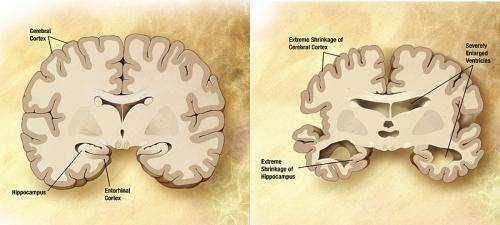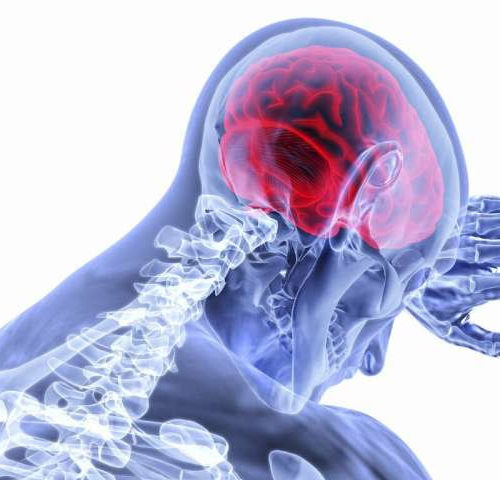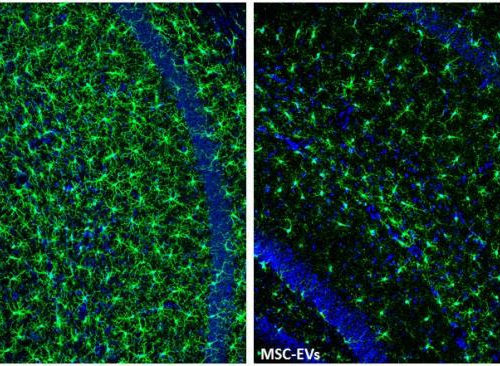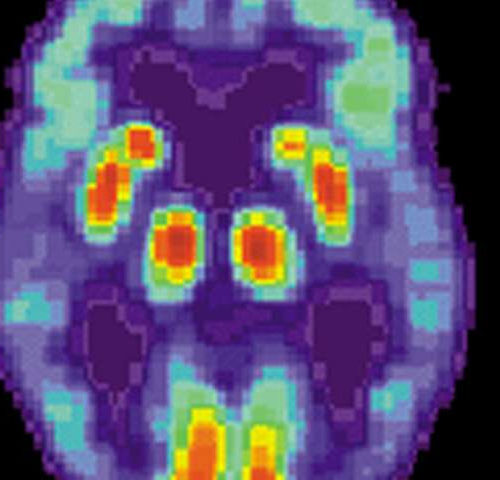Vienna, Austria, June 18, 2020 – AFFiRiS AG, a clinical-stage biotechnology company developing novel disease-modifying specific active immunotherapies (SAITs), today announced that detailed results of the phase 1 clinical program with its lead candidate PD01 in early Parkinson’s disease (PD) patients were published in the peer-reviewed journal The Lancet Neurology. The results of the long-term...
Tag: <span>Alzheimer’s disease</span>
Researchers uncover new insights into Alzheimer’s disease
by Amy Robinson, Florida State University PET scan of a human brain with Alzheimer’s disease. Credit: public domain A new study by Florida State University researchers may help answer some of the most perplexing questions surrounding Alzheimer’s disease, an incurable and progressive illness affecting millions of families around the globe. FSU Assistant Professor of Psychology...
Researchers define type of Alzheimer’s that affects people in their younger years
by From Mayo Clinic News Network, Mayo Clinic News Network Mayo Clinic researchers have defined a form of Alzheimer’s disease that strikes younger people as early as their 40s, presents with atypical symptoms, and affects a different part of the brain not usually associated with Alzheimer’s. In their study, the researchers describe a progressive dysexecutive...
Noise disturbs the brain’s compass
by German Center for Neurodegenerative Diseases Our sense of direction tends to decline with age. In the scientific journal Nature Communications, researchers from the German Center for Neurodegenerative Diseases (DZNE) and experts from the U.S. report on new insights into the causes of this phenomenon. According to their findings, the main source of errors in...
Repetitive negative thinking linked to dementia risk
by University College London In the study of people aged over 55, published in Alzheimer’s & Dementia, researchers found ‘repetitive negative thinking’ (RNT) is linked to subsequent cognitive decline as well as the deposition of harmful brain proteins linked to Alzheimer’s. The researchers say RNT should now be further investigated as a potential risk factor...
Intranasal delivery of MSCs provides hope for treating Alzheimer’s disease
Durham, NC – In the search for a cure for Alzheimer’s disease, mesenchymal stem cells and their derived extracellular vesicles (MSC-EVs) offer much promise, thanks to their protective and anti-inflammatory properties. The results from a new study done on mice, released today in STEM CELLS Translational Medicine, strengthens this idea by showing for the first...
Researchers identify two marine molecules with therapy potential against Alzheimer’s disease
by University of Barcelona An interdisciplinary research study of the University of Barcelona identified two potential candidates to treat Alzheimer’s disease. These are two marine molecules, meridianine and lignarenone B, able to alter the activity of GSK3B activity, a protein associated with several neurodegenerative diseases. The researchers used several biocomputational techniques to detect these so...
New evidence for a blood-based biomarker for Alzheimer’s disease
by Massachusetts General Hospital A potential blood-based biomarker for Alzheimer’s and other neurodegenerative diseases seems even more promising thanks to new research from a Massachusetts General Hospital-led study. According to this team’s work, neurofilament light chain (NfL) has great potential as a biomarker for early detection of Alzheimer’s disease and could be also useful for...
Nilotinib appears safe and affects biomarkers in Alzheimer’s disease clinical trial
by Georgetown University Medical Center A Georgetown University Medical Center clinical trial investigating the cancer drug nilotinib in people with Alzheimer’s disease finds that it is safe and well-tolerated, and researchers say the drug should be tested in a larger study to further determine its safety and efficacy as a potential disease-modifying strategy. The results...
Brain’s ‘updating mechanisms’ may create false memories
by University of Technology, Sydney A study published in Current Biology reports on one of the first comprehensive characterizations of poorly formed memories, and may offer a framework to explore different therapeutic approaches to fear, memory and anxiety disorders. It may also have implications for accuracy of some witness testimony. Senior author Professor Bryce Vissel,...








